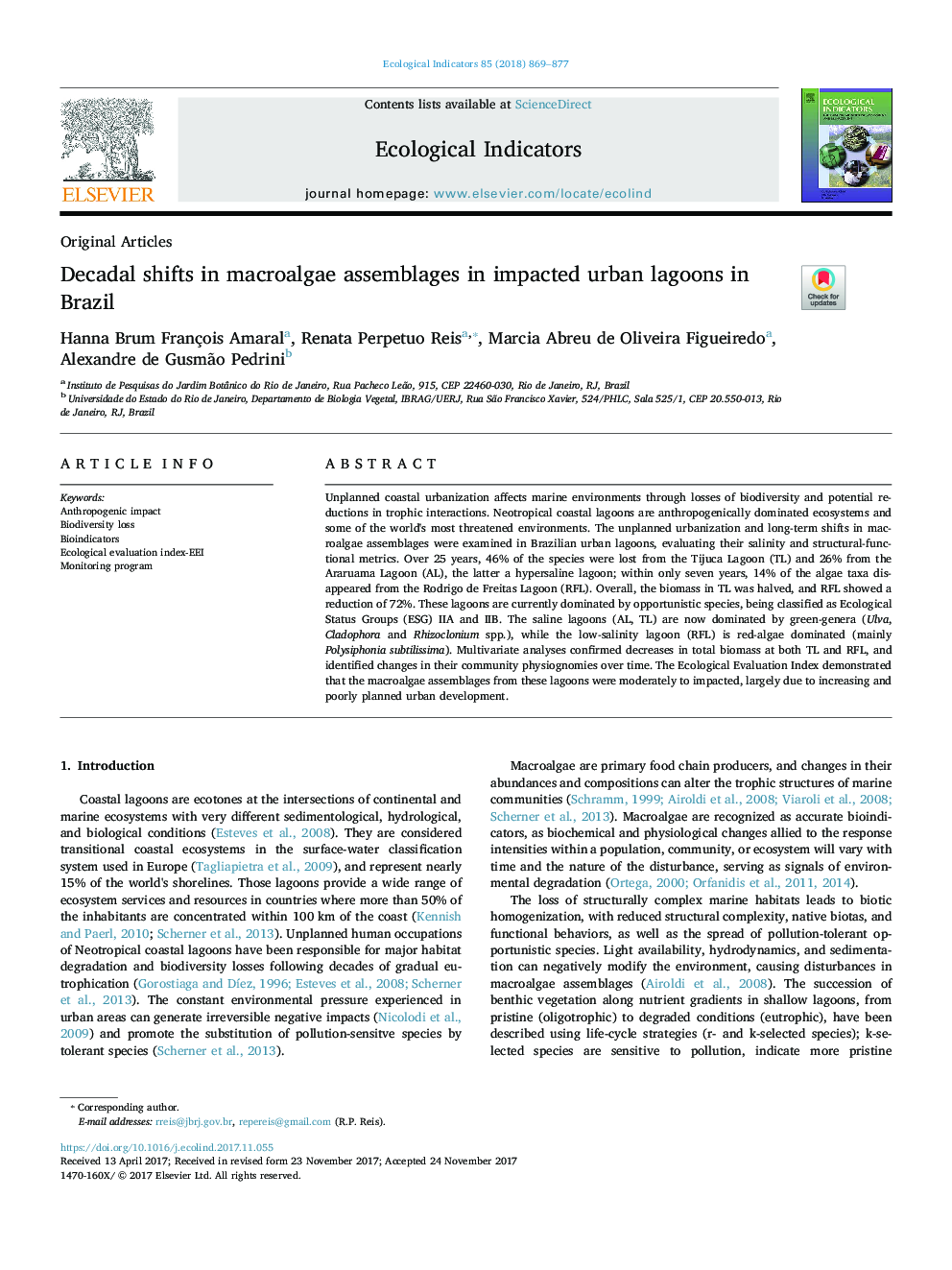| کد مقاله | کد نشریه | سال انتشار | مقاله انگلیسی | نسخه تمام متن |
|---|---|---|---|---|
| 8845764 | 1617117 | 2018 | 9 صفحه PDF | دانلود رایگان |
عنوان انگلیسی مقاله ISI
Decadal shifts in macroalgae assemblages in impacted urban lagoons in Brazil
ترجمه فارسی عنوان
جابجایی دهه ها در مجموعه های ماکروالگا در لانگوهای شهری آسیب دیده در برزیل
دانلود مقاله + سفارش ترجمه
دانلود مقاله ISI انگلیسی
رایگان برای ایرانیان
کلمات کلیدی
موضوعات مرتبط
علوم زیستی و بیوفناوری
علوم کشاورزی و بیولوژیک
بوم شناسی، تکامل، رفتار و سامانه شناسی
چکیده انگلیسی
Unplanned coastal urbanization affects marine environments through losses of biodiversity and potential reductions in trophic interactions. Neotropical coastal lagoons are anthropogenically dominated ecosystems and some of the world's most threatened environments. The unplanned urbanization and long-term shifts in macroalgae assemblages were examined in Brazilian urban lagoons, evaluating their salinity and structural-functional metrics. Over 25 years, 46% of the species were lost from the Tijuca Lagoon (TL) and 26% from the Araruama Lagoon (AL), the latter a hypersaline lagoon; within only seven years, 14% of the algae taxa disappeared from the Rodrigo de Freitas Lagoon (RFL). Overall, the biomass in TL was halved, and RFL showed a reduction of 72%. These lagoons are currently dominated by opportunistic species, being classified as Ecological Status Groups (ESG) IIA and IIB. The saline lagoons (AL, TL) are now dominated by green-genera (Ulva, Cladophora and Rhizoclonium spp.), while the low-salinity lagoon (RFL) is red-algae dominated (mainly Polysiphonia subtilissima). Multivariate analyses confirmed decreases in total biomass at both TL and RFL, and identified changes in their community physiognomies over time. The Ecological Evaluation Index demonstrated that the macroalgae assemblages from these lagoons were moderately to impacted, largely due to increasing and poorly planned urban development.
ناشر
Database: Elsevier - ScienceDirect (ساینس دایرکت)
Journal: Ecological Indicators - Volume 85, February 2018, Pages 869-877
Journal: Ecological Indicators - Volume 85, February 2018, Pages 869-877
نویسندگان
Hanna Brum François Amaral, Renata Perpetuo Reis, Marcia Abreu de Oliveira Figueiredo, Alexandre de Gusmão Pedrini,
